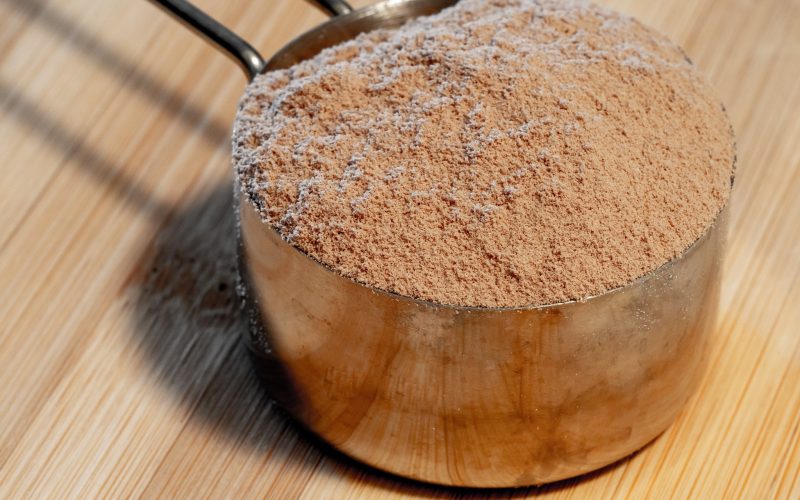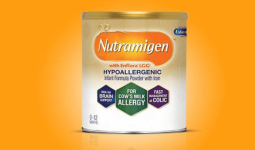Whey protein may be the most popular protein powder among the fitness community, but it isn’t the only one.
Whether you have an allergy to whey or want to try something new, there are plenty of alternative protein powders, each with its benefits and drawbacks.
Check out this list of substitutes for whey protein below!
1. Quinoa
High in quality proteins, quinoa is another option for those who want plant-based substitutes for whey protein powder.
Rice Protein: One of the most popular vegan alternatives to animal proteins like meat or eggs, rice protein powders are high in lysine, which helps promote healthy skin and hair growth.
Adding another meal like quinoa (1 cup cooked with 10 grams of protein) into your day is a straightforward way to get more protein.
Quinoa contains all nine essential amino acids necessary for muscle growth and repair. You can easily make this grain into a bowl by cooking it with beans (black beans have the most protein per ounce), veggies, avocado, and dressing.
One last suggestion is to add almonds to your breakfast smoothie – they are rich in calcium and healthy fats necessary for maintaining good heart health, too!
2. Wheat Germ Powder
Made from whole wheat kernels that have been crushed into powder form, wheat germ is one of many alternatives for those with dairy allergies or sensitivities (or anyone looking for some extra fiber).
3. Hemp Protein
If you’re looking for a vegan-friendly protein powder, hemp protein is among the excellent substitutes for whey protein.
It’s also high in fiber and omega-3 fatty acids, which makes it a heart-healthy choice. Hemp protein powder can be used in smoothies, baked goods, and coffee creams.
The taste might take some getting used to, so if you are new to hemp protein, start with a small amount at first. In addition, the texture may not work well for some recipes that call for whey protein.
4. Rice Protein
You’ll need to find a brand that’s been cold-processed or micro-filtered because rice protein has many health benefits from processing methods like those two.
Rice protein has a more earthy flavor than most other proteins, so it may not work well in sweet recipes like cakes or brownies, which are essential vanilla flavoring.
However, rice protein works well in savory dishes like soups and stews, where the earthiness helps balance out other flavors like salt, onion, or garlic.
As a bonus, rice protein contains all nine essential amino acids and some vitamins and minerals.
5. Pea Protein
Pea protein is made from yellow peas and typically comes in yellow or white varieties. White pea protein usually has fewer carbohydrates, less fat, and fewer calories than yellow pea protein.
Most brands of pea protein contain mostly soluble fibers (roughly 8 grams per serving), which help support healthy cholesterol levels.
The downside is that the flavor profile tends to be bland (so it won’t do much good on its own). There are ways to mask the taste, though. Adding chocolate sauce or strawberries can make it less noticeable.
6. Flaxseed and Chia Seed Pudding
Mixing flaxseed and chia seeds creates a delicious and nutritious pudding for post-workout recovery.
Combine each source with almond milk, sweeten to taste, and refrigerate for at least an hour. You can also add some fruit or spices for extra flavor.
Add a scoop of plant-based protein powder if you’re looking for even more protein. Mix it with vanilla, chocolate, coffee, peanut butter, or cherry flavors!
7. Chickpeas
Chickpeas are a great source of vegan protein. One cup of cooked chickpeas has about 15 grams of protein.
They’re also a good source of fiber and contain essential vitamins and minerals, making them perfect substitutes for whey protein.
Chickpeas can be used in various ways, such as adding them to salads, soups, or pasta dishes. You can also make hummus or roast chickpeas as a healthy snack.
Black beans as substitutes for whey protein: Black beans are an excellent source of plant-based protein.
One cup contains about 17 grams of plant-based protein and 5 grams of dietary fiber. Add black beans to recipes like tacos, burritos, soup, chili, or salad.
8. Tempeh
Tempeh is another good alternative if you’re looking for a soy-free vegan protein packed with nutrients.
It’s made from soybeans fermented using natural bacteria cultures, turning the beans into this flavorful, meatless product.
Another soy-based product, tempeh, is a fermented cake made from whole soybeans.
Like natto, it is high in protein and contains all essential amino acids. Tempeh is also a good source of fiber, vitamins B6 and B12, magnesium, and phosphorus.
A four-ounce serving will give you about 18 grams of plant-based protein and 8 grams of dietary fiber, almost equal to one cup of black beans mentioned above!
9. Natto
Natto is a popular Japanese fermented soybean product. It is high in protein and contains all of the body’s essential amino acids.
Natto is also a good source of vitamins K2 and B12, calcium, iron, and magnesium. If you are looking for substitutes for whey protein that is high in protein and nutrients, natto is a great option.
10. Goat Milk
If you’re looking for substitutes for whey protein, goat milk is a great option.
It’s a source of high-quality protein and has a similar nutrient profile to cow’s milk. Goat milk is also easier to digest and lower in lactose.
Plenty of plant-based proteins can be used as substitutes for whey protein if you’re looking for a non-dairy option. Pea, hemp, and brown rice protein are good options.
11. Mung Beans
Mung beans are little green legumes that pack a serious nutritional punch. They’re a good plant-based protein, fiber, vitamins, and minerals source.
Plus, they’re low in calories and fat. You can find mung beans at most health food stores. Cook them like any other type of bean (e.g., black beans).
12. Tofu
If you’ve ever seen tofu in the store, it might have looked like nothing more than an innocent block of soybean curd—a simple cheese made from soybeans and milk. But tofu is so much more than that.
Conclusion
If you’re looking for a substitute for whey protein, many options are available. Soy, rice, and hemp powders are all vegan-friendly and provide comparable nutrients.
Pea protein is another popular choice that is high in iron and potassium.
These substitutes offer a great way to get the nutrients you need without the side effects for those who are lactose-intolerant or have allergies.








